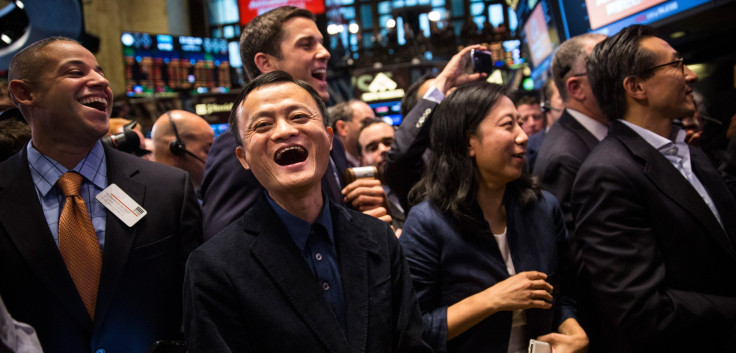Alibaba IPO Becomes Biggest Ever At $25B After Additional Shares Are Sold Via Greenshoe Option

Alibaba Group Holding’s initial public offering has become the world's biggest ever IPO, at $25.03 billion, after the Chinese e-commerce giant and some of its shareholders increased the deal size by 15 percent by selling an additional 48 million shares, according to reports.
The latest move by the company's underwriters came after Alibaba’s shares rose 38 percent to $93.89, from the IPO price of $68, in its New York Stock Exchange debut on Friday. Although the company initially sold a total of 320.1 million American depositary shares, underwriters could sell additional shares -- known as a greenshoe option -- from Alibaba, Yahoo and Alibaba co-founders Jack Ma and Joe Tsai, Reuters reported Monday, citing a source and the IPO prospectus.
The Alibaba IPO, which was already the biggest in the U.S., has now surpassed the Agricultural Bank of China’s $22.1 billion offering in 2010 to become the world’s largest, according to Bloomberg. The Hangzhou, China-based company, which dominates the e-commerce market of the world’s most populated country, also exceeded opening-day performance of companies like Amazon and Facebook by market capitalization, and closed with a valuation of $231.4 billion on the day it started trading.
According to the Wall Street Journal, Alibaba’s IPO underlines the U.S. financial market’s appetite for new listings. Thanks to Alibaba, IPO issuance already has surpassed last year's total and could reach the biggest year in deal value in more than a decade, the Journal said, citing data from Dealogic.
So far in 2014, IPOs in the U.S. have raised nearly $69 billion, which is up from $62 billion in 2013. The biggest year so far was 2000, when U.S. IPOs garnered $105 billion, according to Dealogic.
“It's a good thing when you have a healthy IPO calendar,” Jerry Braakman, chief investment officer at First American Trust, a Santa Ana, California-based financial services company, told the Journal. “Companies and investment bankers think it's going to be a strong market, so it's a bullish indicator.”
© Copyright IBTimes 2024. All rights reserved.












